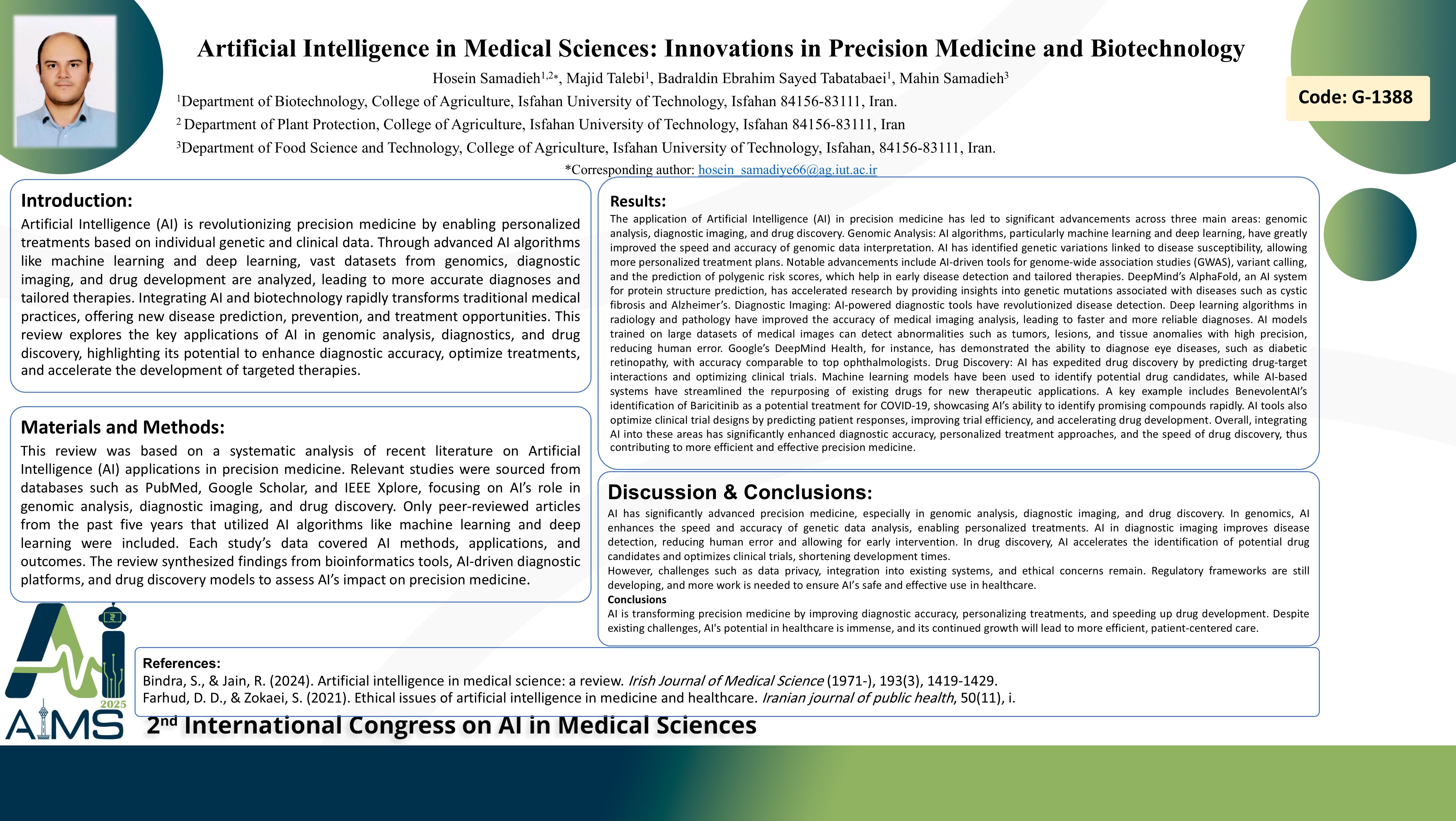Artificial Intelligence in Medical Sciences: Innovations in Precision Medicine and Biotechnology
Code: G-1388
Authors: Hosein Samadieh * ℗, Majid Talebi, Badreddin Ebrahim Sayed Tabatabaei, Mahin Samadieh
Schedule: Not Scheduled!
Tag: Intelligent Virtual Assistant
Download: Download Poster
Abstract:
Abstract
Background and Aims: Artificial intelligence (AI) is rapidly transforming the field of medical sciences, with significant impacts on precision medicine and biotechnology. This review aims to comprehensively analyze AI's applications in genomic analysis, diagnostic imaging, and pharmaceutical development, highlighting its potential to enhance diagnostic accuracy, treatment efficiency, and personalized care. Method: A systematic review of recent literature, tools, and methodologies was conducted to examine how AI, including machine learning and deep learning, is integrated into various domains of medical science. The review focuses on up-to-date advances in genomic data analysis, diagnostic imaging, and drug discovery, ensuring a thorough synthesis of current knowledge and innovations. Results: AI significantly improves genomic analysis by enabling the rapid identification of genetic variations and disease susceptibility, facilitating personalized treatment plans. In diagnostics, AI-powered imaging and molecular data analysis reduce human error and enable early disease detection through improved radiological and histopathological assessments. Additionally, AI expedites drug discovery in pharmaceutical development by predicting drug-target interactions and optimizing clinical trials. Notable examples include the use of AI platforms like BenevolentAI for drug repurposing and DeepMind’s AlphaFold for protein structure prediction, which have accelerated the development of targeted therapies. Conclusion: AI is a transformative tool in medical sciences, contributing to improved patient outcomes, treatment personalization, and innovation in biotechnology. However, data privacy, ethical considerations, and regulatory barriers must be addressed to ensure AI's responsible and effective integration into precision medicine. Future efforts should focus on overcoming these challenges to fully realize AI's potential in advancing medical science.
Keywords
Medical, Precision, Genomics, Diagnostics, Biotechnology
